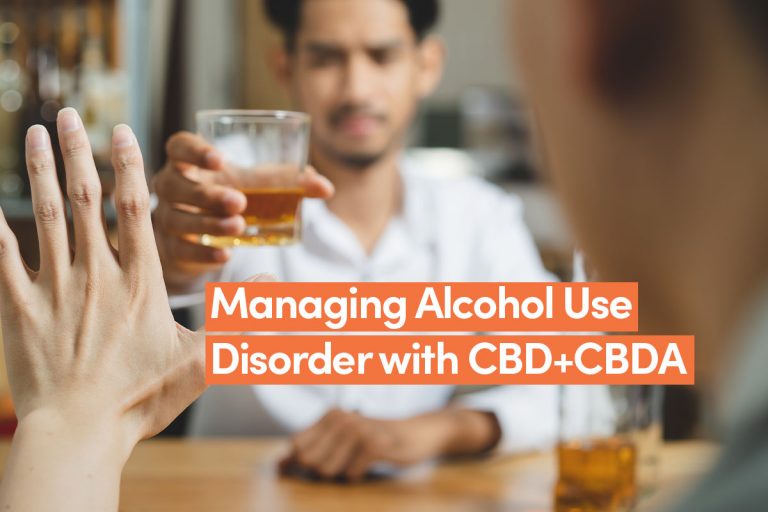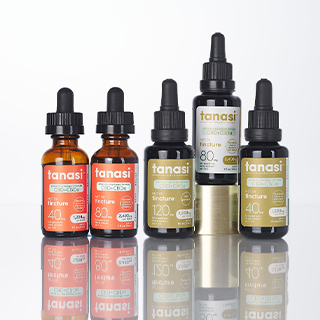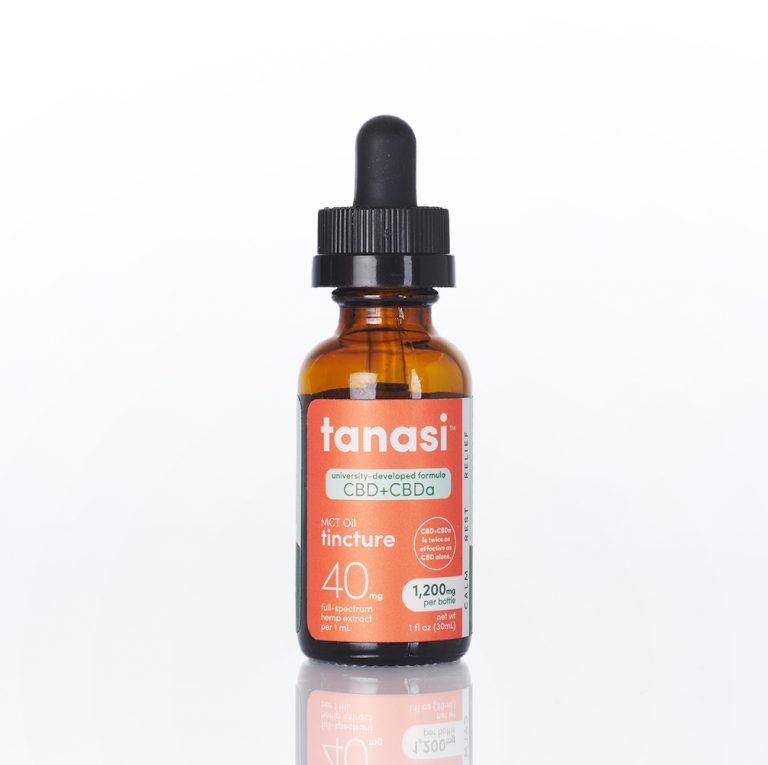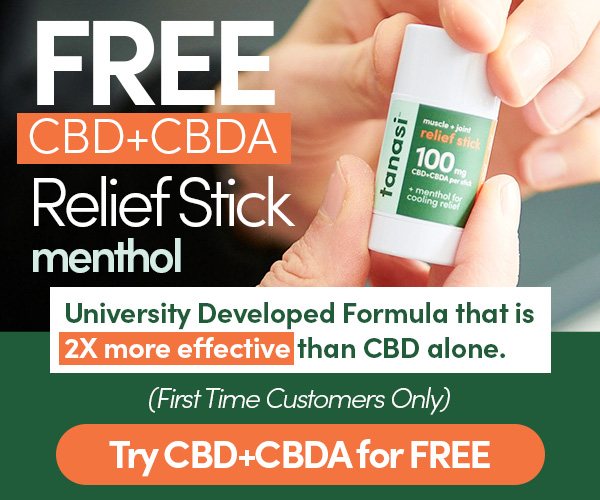What is CBG and Why Do We Include it in Tanasi’s Full Spectrum Products?
Posted on January 30th, 2023
So, you may be wondering – what is this CBG that everyone is talking about? Is it just like CBD and THC: a cannabis extract (cannabinoid) that many people choose to supplement? Well, in order to get a better picture of CBG, it is important that we first understand its origins. That’s the only way we can get a clear and accurate picture of this cannabis extract.
What Is CBG? 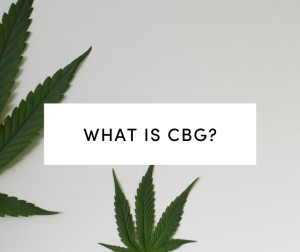
CBG is short for cannabigerol. It is often referred to as the ultimate cannabinoid, or the mother of all cannabinoids, because it plays a role in forming other compounds including CBDA, CBD and THC. But this wasn’t always the case. For years, scientists thought that CBG was an insignificant cannabinoid because most full-spectrum cannabis extracts only contain tiny amounts of this cannabinoid. However, CBG is gradually entering the spotlight as more companies advance their techniques for extracting and producing cannabigerol.
Remember, cannabigerol is just one of the many cannabinoids found in all varieties of cannabis plants. To clarify, cannabinoids are organic compounds that form naturally in the cannabis plant. CBG is considered a ‘minor-league’ cannabinoid when compared to ‘major-league’ cannabinoids like THC and CBD because of its lower concentration. In fact, CBG only constitutes about 1% of a typical cannabis extract. This cannabinoid is present in all full spectrum cannabis or hemp extracts.
What Is CBGA and Why Is It Important?
CBGA stands for cannabigerol acid. This acid, present inside cannabis plants, is involved in forming other cannabinoids like CBD, THC, and CBC. So, we can confidently say that without CBGA, we would not have any of those cannabinoids. And, since CBGA is a direct precursor of CBG, this ‘minor’ cannabinoid is still an important player in the extract world.
As the cannabis plant grows, various enzymes (also referred to as synthases) convert CBGA into CBCA, CBDA, and THCA. In turn, these convert into CBC, CBD, and THC through a process known as decarboxylation. This is simply a heating process that eradicates carboxyl molecules. The tiny quantities of CBGA that are left behind in the plant after decarboxylation are used to form other cannabinoids.
The most crucial thing to note here is that cannabigerol plays a significant role in the formation of other cannabinoids in the cannabis plant. CBG, and in turn CBGA, is usually found in low concentrations because it is already used up while forming other major cannabinoids. Because of this, the best way to get a CBG-rich extract is to harvest a plant in its early stages of growth, before CBGA converts to THC or CBD.
By doing so, you will get a plant with little or no CBD or THC. But you can expect much higher CBG concentrations. Alternatively, you could try crossbreeding plants. You would start by identifying cannabis species with high CBG production. But this is a highly technical process that not many people can afford.
Exploring the Differences of CBG vs. CBD
CBG and CBD are both cannabinoids, extracted from the cannabis plant. And they share a lot of similarities. For instance, both CBD and CBG are non psychoactive effects. In contrast, THC causes a ‘high’ when ingested.
But these compounds also have their differences and unique characteristics. Cannabigerol is very rare, while CBD is prevalent. And CBG is much harder to extract from the cannabis plant. In fact, extracting this compound is a cost and time-intensive affair that requires a lot of skill and dedication. Extraction also requires specialized equipment that is often very expensive. And, because of its low concentrations, it would take larger amounts of cannabis to retrieve the same amount of CBG as it would CBD from the cannabis plant. Because of this, very few individuals and companies can successfully undertake this task. Instead, many people prefer to enjoy CBD as part of their full-spectrum CBD extracts. While the quantity of CBG will be small, it can still interact with other plant compounds to deliver a holistic supplement.
What Are the Possible Side Effects?
We do not have a lot of available research on cannabigerol. So we don’t know a ton about its nature, potential, benefits, or side effects. Still, the currently available research suggests that taking CBG will not trigger any significant side effects, just as CBD is considered to be a safe supplement according to the World Health Organization. This means that as long as you’re cleared by a healthcare provider, and you do not exceed recommended daily doses for cannabigerol, it should not cause you any serious side effects.
Does CBG have Psychoactive Effects?
Unlike THC, CBG is non-psychoactive. This means that cannabigerol extracts will never get you high. In that respect, CBG is very similar to CBD. CBG and CBD interact differently with the brain when compared to THC.
It is also important to note that pure cannabigerol extracts or CBG is non-psychotropic. And using CBG should not interfere with your day-to-day activities. If you are drug tested for your job we always advise, just stay away from cannabis or hemp products until your employer updates their guidelines or policies around cannabis use.
Where Can You Buy CBG Products? 
For years, legal regulations made it challenging for Americans to buy any kind of cannabis extract, regardless of whether they came from high THC marijuana plants or low-THC hemp plants. Thankfully, however, this is quickly changing, as restrictions relax and more suppliers enter the market. Already, the federal government has legalized the use of hemp extracts sourced from plants with THC concentrations below 0.3% by dry weight. This means that consumers can purchase and use these extracts without fear of legal repercussions. Still, regulations vary between states, so be sure to check local laws surrounding the use of hemp products before making any purchases.
At the same time, it’s important to remember that not all hemp extracts are created equally, so it’s important to find a reputable supplier for any extract products you use, whether they come in oil, tincture, topical or pill form. Because of the increasing demand for these products, many unreliable suppliers flood the market with counterfeit products. So, as a consumer, you should only purchase CBG and other cannabis extracts from reputable suppliers, who supply proof of their products’ safety and efficacy with third-party lab tests. You can often find a certificate of analysis as a result of third-party lab tests—here at Tanasi, we make our COAs readily available on the label of every product we sell. We also share information on our product’s potential uses by sharing access to our pending patent application, highlighting the reasons why CBG may be found within our unique cannabinoid ratio of CBD to CBDA 1:1 formula.
And that’s the way you can know that manufacturer’s stand behind their products, which is the best reason to trust what they’re selling for yourself!


